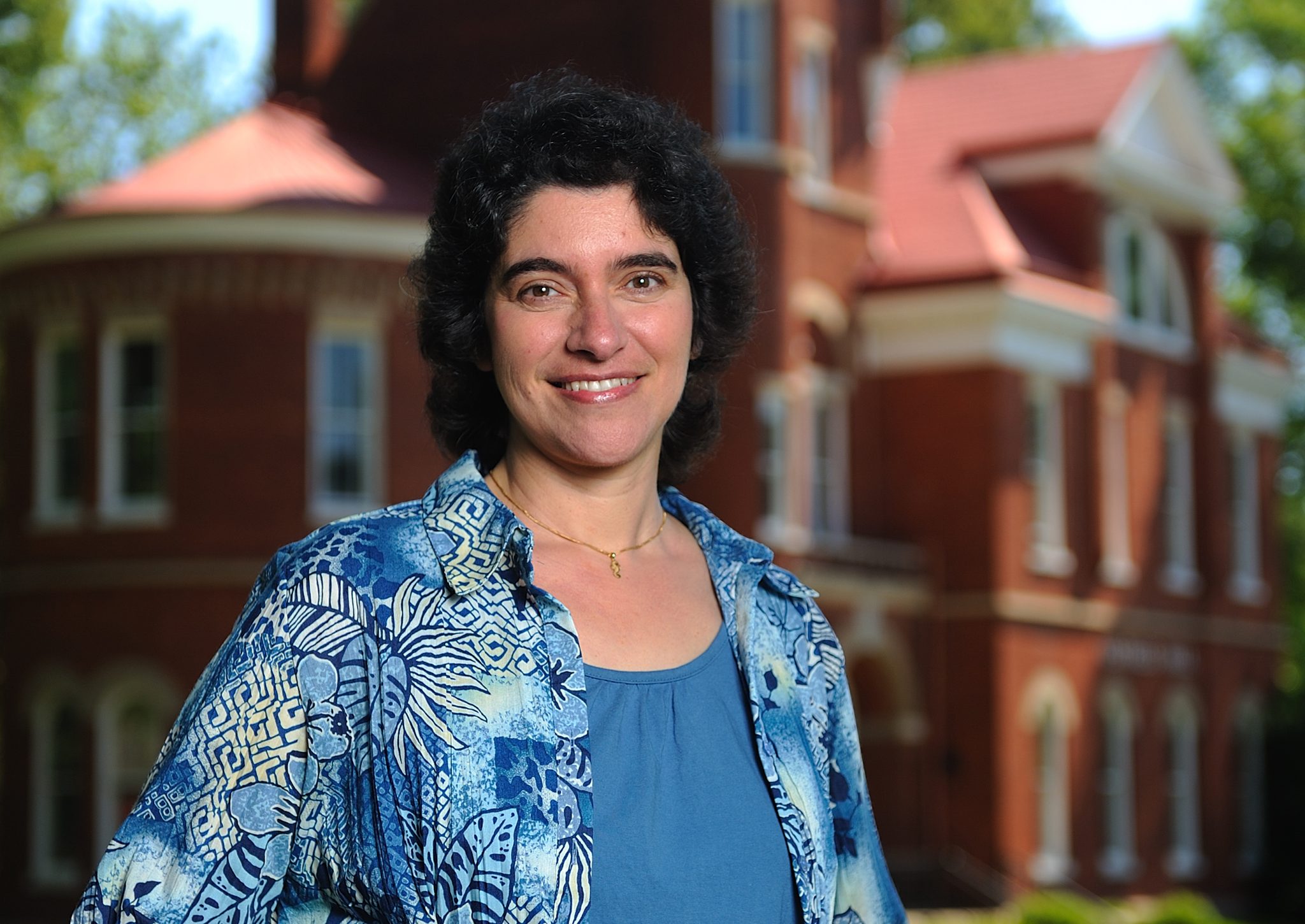
Tamar Goulet, UM professor of biology, has been selected as one of 125 female ambassadors for a new program, launched by the American Association for the Advancement of Science in conjunction with Dallas-based Lydia Hill philanthropies, to encourage girls to pursue STEM education and careers. Photo by Robert Jordan/Ole Miss Digital Imaging Services
OXFORD, Miss. – Tamar L. Goulet, University of Mississippi professor of biology, has been selected as one of 125 female ambassadors for a new nationwide education program.
The program, launched by the American Association for the Advancement of Science in conjunction with Dallas-based Lydia Hill philanthropies, is designed to provide role models and support in math and science to middle-school girls to encourage their interest in STEM education and careers.
The academic IF/THEN Ambassadors were chosen based on their research, commitment to teaching and professional accomplishments. As an IF/THEN program ambassador, Goulet will connect with female students ages 11-13 in person and through various media platforms, including YouTube channels, and provide individual coaching via Skype.
“A scientist should not only excel in science but also facilitate understanding of, and foster enthusiasm for, science,” Goulet said. “My career combines novel innovative research in science and teaching with science communication and mentorship.”
Goulet, who joined the Ole Miss faculty in 2001, has published numerous papers on the symbioses between cnidarians – including corals, octocorals and sea anemones – and their mutualistic algae. Her work has received funding from the National Science Foundation, NASA and the National Oceanic and Atmospheric Administration.
She teaches graduate and undergraduate courses in biology.
In 2008, she received the College of Liberal Arts’ Cora Lee Graham Award for Outstanding Teaching of Freshmen. In 2018, she received an honorable mention Teaching Excellence Award from the Personalized Learning and Adaptive Teaching Opportunities Program.
“Professor Goulet is an accomplished researcher who has also devoted her career to teaching and mentoring students,” said Lee Cohen, dean of the College of Liberal Arts. “The University of Mississippi has been the lucky beneficiary of both these talents.
“I know her passion for teaching will help ignite enthusiasm for STEM in the country’s next generation of female budding scientists.”